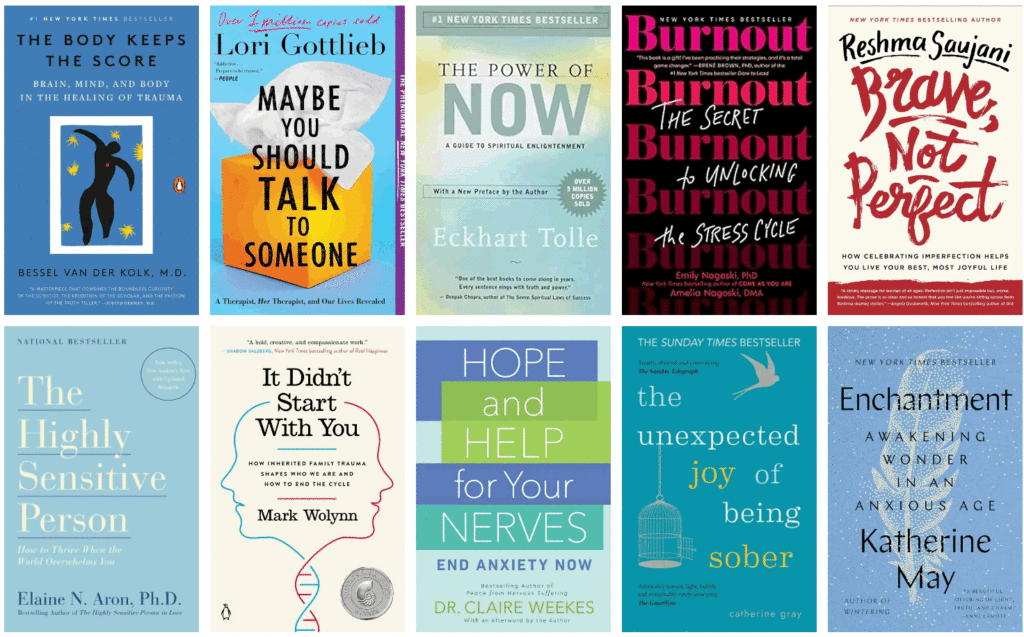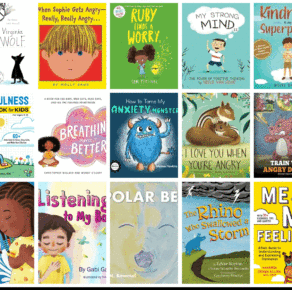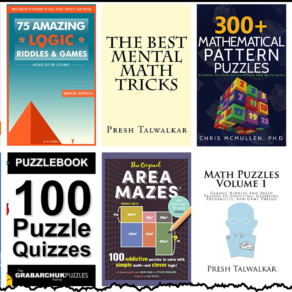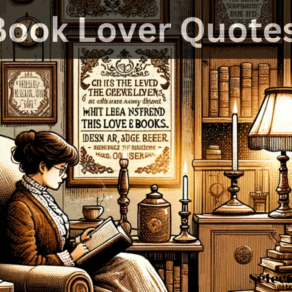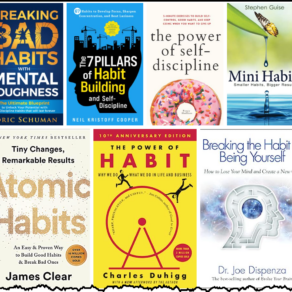Books about mental health are the topic of our blog post today!
Let’s talk about something we all know is important but often push to the backburner—our mental health. Recent stats are jarring; according to the World Health Organization, one in four people will be affected by mental or neurological disorders at some point in their lives. Globaly, around 450 million people currently suffer from such conditions, making mental disorders among the leading causes of ill-health worldwide. No wonder more and more educators, parents, and students are seeking resources to help navigate these complicated mental landscapes.
Being an educational researcher and an avid reader, I’ve always been keen to explore how the right books can offer solace, advice, and a new perspective on life. I’ve scoured various reliable sources, including reputable platforms like Healthline and Women’s Health Magazine, to compile a list of books that delve deep into the intricate world of mental health.
These are not just books; they’re handpicked guides that can offer you a roadmap through the complexities of emotions, relationships, and self-awareness. Trust me, they pack in more than a dose of ‘feel good’; they offer actionable insights that you can implement in your daily life.
So go ahead, explore the list, and find the read that resonates with you. And hey, if you’re particularly interested in mental health resources for the younger minds, be sure to check out my other posts on mental health books for kids and mental health posters.
Books about Mental Health
Here are our top picks for books about mental health:
1. The Body Keeps the Score, by Bessel van der Kolk M.D.
If you’ve ever wanted to delve into the intricate web of trauma, both psychological and physiological, this book is your roadmap. Dr. Bessel van der Kolk draws upon decades of research and clinical experience to unpack how trauma reshapes the body and brain.
Not only does he delve into the hard science behind trauma, but he also explores a range of innovative treatments that engage the brain’s natural neuroplasticity. This book isn’t just a clinical exploration; it offers genuine hope by showcasing how relationships can both harm and heal us. Groundbreaking and enlightening, this is essential reading for anyone interested in understanding the far-reaching impact of trauma on individuals and society at large.
Buy The Body Keeps the Score on Amazon
2. Maybe You Should Talk to Someone, by Lori Gottlieb
Imagine flipping the script and putting a therapist on the couch. Lori Gottlieb does precisely that, providing a raw, often humorous, insider’s look into the therapeutic process—both as a professional and a patient. Navigating personal crisis, she seeks the counsel of Wendell, her own therapist, while simultaneously providing therapy to her clients.
It’s a book that doesn’t just explore the lives of different people dealing with various emotional hurdles, but also scrutinizes the questions and dilemmas the therapist herself faces. If you’re interested in the complexities of the human psyche and the struggles even experts face, this book offers a compelling read, reminding us that therapists are people too.
Buy Maybe You Should Talk to Someone on Amazon
3. Set Boundaries, Find Peace: A Guide to Reclaiming Yourself, by Nedra Glover Tawwab
Nedra Glover Tawwab takes on the elusive concept of setting healthy boundaries in “Set Boundaries, Find Peace.” Tawwab, a licensed counselor, combines relatable anecdotes with evidence-based approaches like cognitive behavioral therapy to guide readers through the labyrinth of setting boundaries without feeling guilty.
From personal relationships to workplace dynamics, the book is a comprehensive guide for anyone looking to regain control of their emotional and mental space. If you’re an educator or parent struggling with setting limits—something I grappled with many times during my years of teaching—this book is a must-read.
4. Emotional First Aid, by Guy Winch Ph.D.
Think of this book as a first aid kit for your emotional bumps and bruises. Guy Winch argues that while we have first aid for physical injuries, we often neglect emotional injuries like rejection, guilt, or failure. Drawing from scientific studies, Winch provides specific, actionable steps to heal emotionally.
Whether you’re grappling with day-to-day emotional stressors or larger psychological hurdles, the book provides a variety of treatments aimed at building emotional resilience. The methods are practical and science-backed, making it a must-read for anyone seeking to equip themselves with emotional self-care tools.
Buy Emotional First Aid on Amazon
5. The Power of Now, by Eckhart Tolle
This is not just another self-help book urging you to “live in the moment.” Eckhart Tolle pushes you to confront and dissolve your ego, urging you to realize that the “now” is all that exists and all that ever will. Rooted in spiritual tradition yet accessible in its dialogue format, the book emphasizes the liberation found in presence and acceptance of the current moment.
You’re led through a transformative journey where you learn to separate yourself from your mind and its constant chatter. For anyone caught in the web of overthinking or anxious anticipation, this book serves as a guide towards finding peace in the present.
Buy The Power of Now on Amazon
6. Burnout: The Secret to Unlocking the Stress Cycle, by Emily Nagoski PhD
This book zeroes in on the unique ways women experience burnout and offers a roadmap for achieving better mental well-being. It avoids the usual platitudes and dives deep into the societal and biological stressors women face, advocating for a holistic approach to health.
Emily and Amelia Nagoski bring both scientific insights and practical exercises to guide women through the labyrinth of societal expectations and personal ambitions. Rather than selling an impossible dream of “having it all,” they focus on helping women embrace their genuine selves. In the classroom, I’ve seen the toll of burnout on both colleagues and students, and this book would serve as a kind of ’emotional first-aid kit’ for navigating those high-stress situations.
Related: 12 Burnout Books for Teachers
7. Brave, Not Perfect: Fear Less, Fail More, and Live Bolder, by Reshma Saujani
Imagine pushing aside the fear of not being “good enough” and daring to live life on your terms. Reshma Saujani’s book explores the toxic culture of perfectionism that many women are raised in and offers a different approach: bravery. This book resonates so much because it breaks down the social conditioning that often starts in educational settings.
It encourages women to challenge their comfort zones, embrace failures as learning experiences, and, above all, prioritize their own well-being and aspirations. This is particularly relevant to educators who can sometimes unwittingly perpetuate these unhelpful norms.
Buy Brave, Not Perfect on Amazon
8. The Highly Sensitive Person, by Elaine N. Aron
This book is a game-changer for those who identify as Highly Sensitive Persons (HSPs) or who work with them (like teachers or therapists). Dr. Elaine Aron gives you the tools to understand this personality trait, offering self-assessment tests, practical tips, and techniques for managing over-arousal and building self-esteem.
Far from depicting sensitivity as a weakness, this book shows how it can be harnessed as a strength, both personally and professionally. I can’t help but think about how impactful this knowledge could be in educational settings, where we often overlook the needs of highly sensitive students. The research-based insights could be a resource for educators and parents who want to support the unique learning needs of HSPs.
Buy The Highly Sensitive Person on Amazon
9. Loving Bravely, by Alexandra H. Solomon PhD
Alexandra Solomon gets to the heart of romantic relationships by pointing out that real love starts within oneself. The book promotes the concept of ‘relational self-awareness,’ encouraging you to examine your past and present relationships to understand your behavioral patterns.
The idea here is straightforward but deeply impactful: for a healthy, fulfilling relationship with another, you first need to cultivate a robust, loving relationship with yourself. This resonates with my experience in educational settings, where self-awareness can be a game-changer in how teachers and students interact. Forget the fairytale love story; this book aims to ground your romantic aspirations in self-awareness and emotional intelligence.
10. It Didn’t Start with You, by Mark Wolynn
The idea that our traumas can be inherited through generations might sound unsettling, but Mark Wolynn explores this complex subject with nuance and depth. Drawing upon neuroscience and psychology, Wolynn offers an intriguing perspective that urges us to consider our own behavioral patterns in the context of our family history.
His book presents tools like diagnostic self-inventories and techniques for developing a genogram (an extended family tree) to identify and resolve deeply rooted fears and anxieties. This is fascinating material for educators and parents who aim to understand children on a more profound level, identifying how unspoken traumas might be affecting their development and learning experience.
Buy It Didn’t Start with You on Amazon
11. Hope and Help for Your Nerves: End Anxiety Now, by Claire Weekes
Dr. Claire Weekes doesn’t mince words when addressing the crippling symptoms of anxiety. She outlines a step-by-step process that aims to empower individuals to understand, manage, and ultimately overcome their anxiety. The symptoms that many dismiss as minor—rapid heartbeat, trembling hands, a sense of impending doom—are, in fact, debilitating for those who experience them.
Her approach is backed by her clinical experience and offers practical ways to break the cycle of fear and regain control over one’s life. I can attest that understanding the physiological responses to stress can be invaluable, especially in high-stakes environments like classrooms, where anxiety can manifest in both teachers and students.
Buy Hope and Help for Your Nerves on Amazon
12. The Unexpected Joy of Being Sober, by Catherine Gray
Catherine Gray’s book tackles the often-stigmatized topic of sobriety with openness and personal insight. She doesn’t just talk about the struggle to quit; she discusses the immense benefits that came with her decision to go sober. Gray outlines how her sobriety led to a rejuvenated life full of genuine friendships, stronger family bonds, and a thriving career.
In my experience, topics of addiction and wellness can be deeply relevant in educational settings. It’s not uncommon for students or even teachers to be dealing with these challenges, and the focus on the long-term benefits of making a tough choice can be both empowering and transformative. Gray combines her personal narrative with factual research and expert opinions to craft a compelling argument for why sobriety can be a joyous journey, making it a worthwhile read for anyone questioning their relationship with alcohol.
Buy The Unexpected Joy of Being Sober on Amazon
13. Enchantment: Awakening Wonder in an Anxious Age, by Katherine May
Katherine May’s “Enchantment” is a heartfelt call to rediscover the sense of wonder in our lives. At a time when the world feels more anxious and divided than ever, May takes the reader on a journey to rekindle a sense of awe and curiosity. Her narrative is a blend of personal struggles and a deeper exploration of the natural elements—earth, water, fire, air—as sources of inspiration and peace.
Given my own passion for educational technology, the concept of re-orienting ourselves to find the ‘magic’ in the world around us feels incredibly relevant. Whether we’re educators, parents, or lifelong learners, there’s something profoundly beneficial about taking a step back to appreciate the subtler aspects of life. This book serves as a guide to navigate the complexities of modern life with a renewed sense of wonder.
Final thoughts
Each of the books featured in the list above offers its own unique lens for examining the complexities of our minds, relationships, and emotional well-being. Whether you’re an educator, parent, or just someone interested in personal growth, these reads can provide you with not just information, but transformation. And remember, self-improvement is a continuous journey, not a destination.



